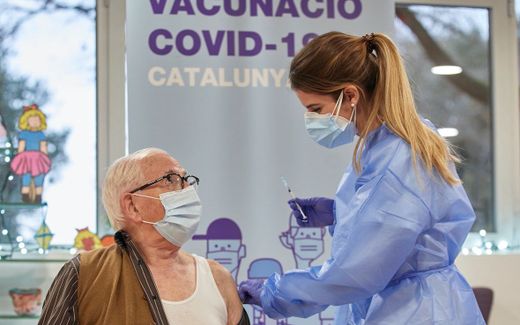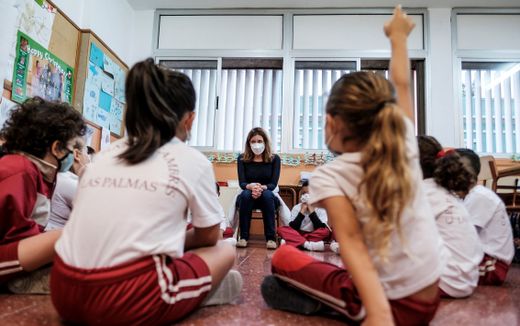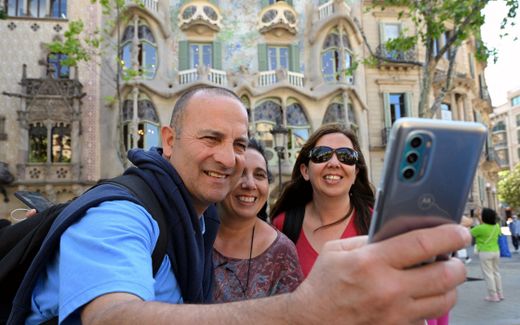Weekly column from Spain: Smoking Cannabis as a medicine
19-08-2022
Christian Life
Jorge Ruiz Ortiz, CNE.news
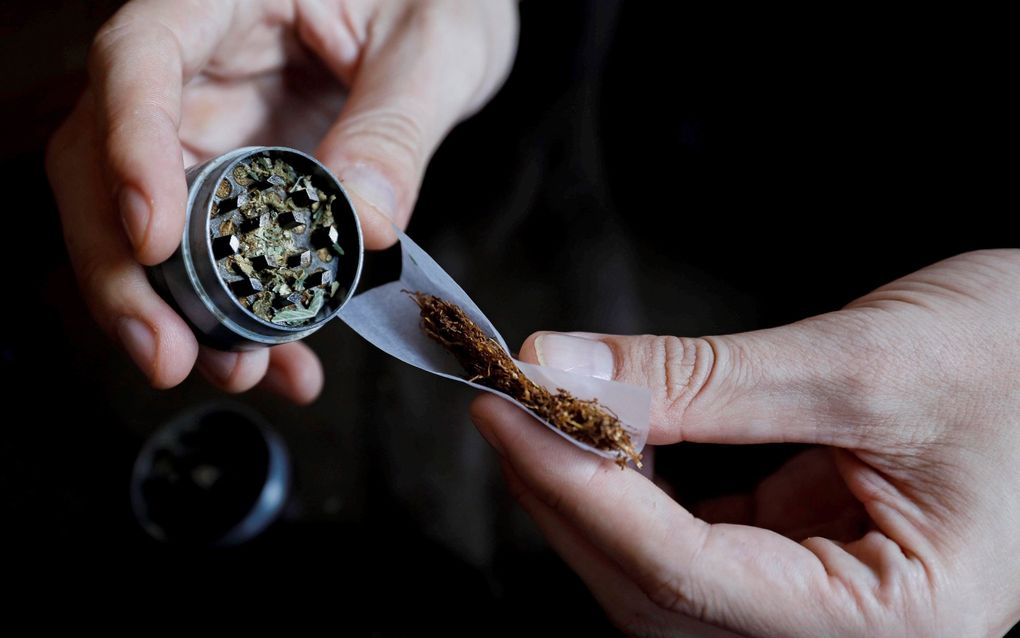
Cannabis cigarette in the making. Photo EPA, Ana Escobar
Christian Life
Late June, the Congress of Deputies “endorsed” the regulation of cannabis for medical purposes in Spain. Even though a majority of the Deputies is in favour of it, a former cannabis consumer expresses criticism.
The measure received the favourable vote of the left-wing parties and those formerly known as moderate (Basque and Catalan) nationalists. The traditionally pro-independence and left-wing Basque and Catalan parties abstained (curiously indeed) and only the two so-called conservative national parties voted against.
Obviously, the medical use of cannabis, if it is in the form of creams or ointments to alleviate local pain, poses no problem for anyone. But what the proposal allowed was the smoking of the drug - a nuance that is not given due attention, but which is crucial to know in order to understand what was being voted on, as well as the reluctance and opposition to its approval.
Jorge Ruiz (1969) was born in Barcelona, Spain. At the age of 19, he was converted to the Christian faith.
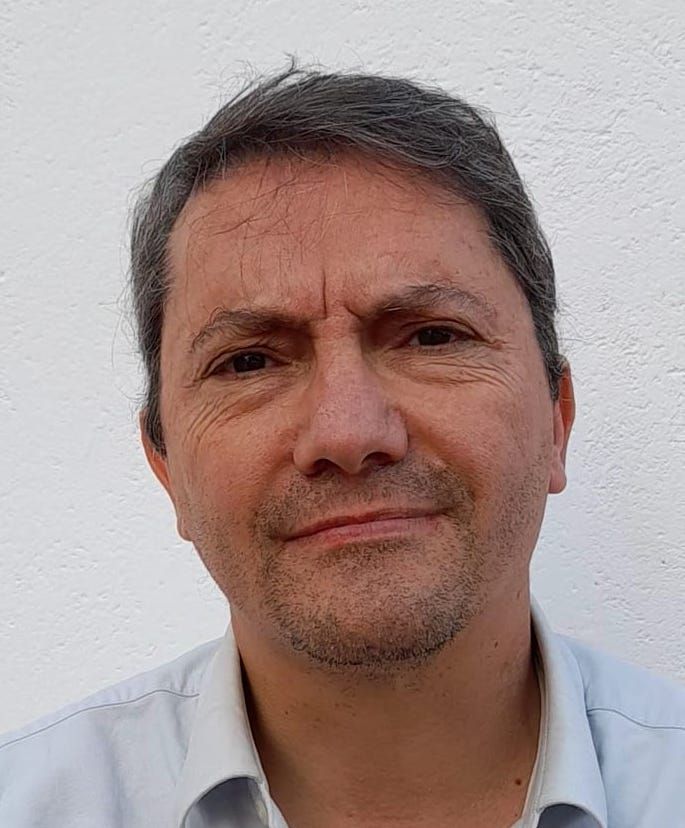
He graduated in Journalism at the University of Barcelona and received a PhD in Theology at the Faculté Libre de Théologie Réformée in Aix-en-Provence, France. He serves as a Protestant pastor in the Iglesia Reformada Continuada, in Rubí (Barcelona, Spain). He is assessor for the Trinitarian Bible Society for the Spanish and French projects. He is married and father of four.
Of course, the real motive behind this measure is economic. Even before the approval, eight companies in Spain already had licences to produce cannabis for medical purposes. But this is only the tip of the iceberg. In mid-April, police in Navarre dismantled the largest cannabis plantation for drug trafficking, with more than 415,000 plants spread over 67 hectares of land!
Compulsive users
Cannabis use among adolescents in Spain is skyrocketing. According to statistics, one third of Spanish adolescents (aged 14-18) admit to having consumed it in the last month, and about 18% are what can be considered compulsive users.
Cannabis investment is one of the truly important businesses that still remain in the country and, in fact, people already knew that its legalisation in Spain was only a matter of time. Now, with legalisation for “medical purposes only”, this drug has been legitimised by legislators in the eyes of society, which is what producers and consumers have been insistently demanding for years. With the more than foreseeable lax implementation of the measure, one can only expect that cannabis consumption will be completely normalised and, of course, contribute its fair share to the funding of the monstrous - and ever-increasing - State that we have been enjoying lately in Spain.
Those of us of a certain age (in my case, 53 now) remember perfectly well how cannabis use spread in Spain in the mid-1980s. At the beginning, its use among adolescents was very minor, confined to marginal environments or what today are called “urban gangs”, mainly in heavy metal fans.
I was a regular cannabis smoker during my adolescence, from the age of 15 to 18. In the end, I was what you could call a compulsive user who smoked the drug daily. Of course, this caused me to almost completely fail in my studies. I was only able to recover at the last moment when, three months before my university entrance exams, I decided to stop smoking cannabis altogether to study seriously. I was not converted at the time, but quitting smoking was for me an approach to God, followed by my true conversion to God through Christ a year later.
Peer pressure and hippie culture
Why did I start smoking cannabis? On the one hand, my group of friends also smoked it, and I listened to quite a few heavy metal bands. But on the other hand, drug use was something that simply was in the air at the time. The 60s and the American hippie counterculture were very closely related and the truth is that there was a decided interest in promoting this youth culture, economic interests aside, to introduce a distancing in customs between young people and their parents’ generation, as well as a means of establishing a definitive cultural break with the previous political regime that is, Francoism.
We smoked, then, because those who were against it were fachos, those who told us, and we laughed at, that phrase often repeated that “en España ya no hay libertad, sino libertinaje” (a play on words meaning in Spain there is no longer freedom, but libertinism).
It is in this way that the political forces on the left became the spokespersons during the Transition for the public authorities to abandon what they called a “paternalistic” approach to the drugs issue. Then, in June 1983, as soon as it came to power, the Socialist Party, demonstrating its mature and rational approach to the issue, carried out a reform of the Penal Code, which in its famous art. 344 established the distinction between “hard” drugs (which were the ones being particularly prosecuted) and “soft” drugs (such as cannabis). At the same time, in line with the contemporary legislations adopted in the rest of Europe (following the trend of UN conventions of 1961 and 1971), this reform criminalised the possession of drugs only if it was for the purpose of trafficking, not for consumption.
I mean, when we were teenagers, we knew perfectly well that consumption of cannabis had been decriminalised in Spain. And that is how we started consuming it openly in public, without the police being able to do anything about it.
Direct deaths
This distinction between soft and hard drugs has been one of the greatest and most harmful absurdities in Spain’s recent history. Firstly, because the so-called “soft” drugs were the necessary prelude to the end of the prohibition of the “hard” ones. Second, because, as the drugs that they are, they wreak real havoc on those who end up being addicted to them, and we are not only referring to the psychological disorders they cause.
According to official data from the Spanish Ministry of Health, there have been more than 34,000 drug-related deaths in Spain between 1983 and 2019. These figures only include direct deaths, not counting those caused by traffic accidents or heart attacks under the effects of drugs. Furthermore, it is worth knowing that in 2019, 25% of the 1,015 drug-related deaths in Spain were due to adverse reactions to cannabis.
With the new measures adopted recently, thus, young people will now increase their cannabis consumption because, certainly many will say that “the government recognises that they are good for our health”. But for the deaths that this will cause, no one is responsible, nor will they be. Nor will anyone care if, as a result of cannabis use, hundreds of thousands of young people will not be able to achieve what has been considered a normal and desirable live: a good job, a decent marriage and lots of children. All that we called to be facho.
Related Articles


